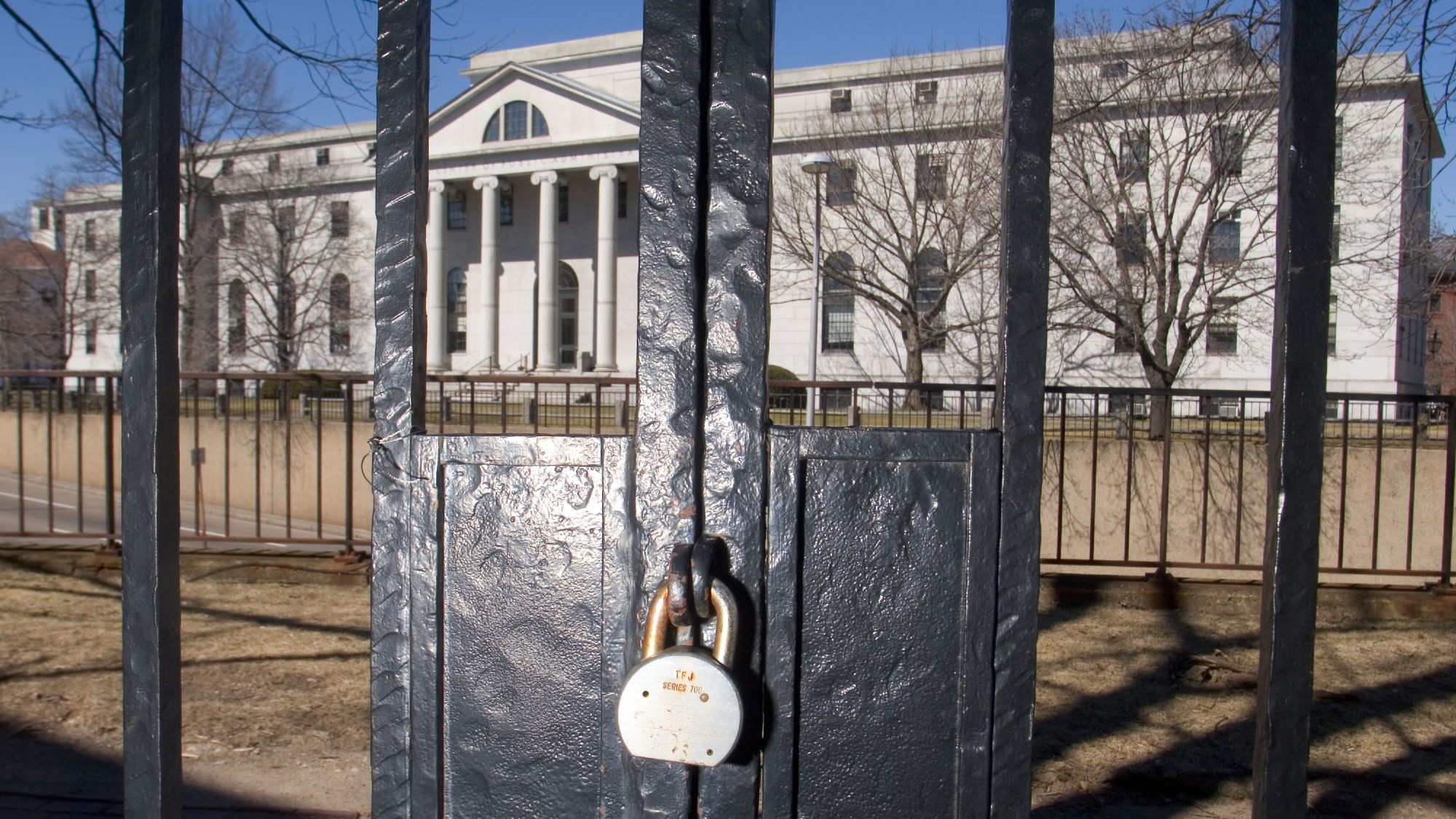The pros and cons of ranking universities by graduate earnings
New government plans are rubbished by higher education experts

A free daily email with the biggest news stories of the day – and the best features from TheWeek.com
You are now subscribed
Your newsletter sign-up was successful
Government proposals to introduce rankings for universities based on graduate earnings have been criticised by leading academics.
Ministers are planning to introduce an Ofsted-style rating system, with graduate earnings expected to be the way courses are judged, The Guardian reports.
Nick Hillman, director of the Higher Education Policy Institute think-tank, said scrutiny of low-performing courses was a good thing, but graduate earnings should not be the main measure of performance.
The Week
Escape your echo chamber. Get the facts behind the news, plus analysis from multiple perspectives.

Sign up for The Week's Free Newsletters
From our morning news briefing to a weekly Good News Newsletter, get the best of The Week delivered directly to your inbox.
From our morning news briefing to a weekly Good News Newsletter, get the best of The Week delivered directly to your inbox.
“When Ofsted goes into a school it judges whether it is a good or bad school based on what is happening there,” Hillman said. “It doesn’t say ‘we think this is a bad school because kids who have been here in the past have got bad jobs’. That is how universities will be judged.”
So what are the other pros and cons of ranking universities by graduate earnings?
Pros
Bang for government buck
The government argues that the investment it makes in education means it has a responsibility to see funding used “efficiently”.
A free daily email with the biggest news stories of the day – and the best features from TheWeek.com
“The government subsidises around 50% of the cost of higher education and it is only fair that this funding is used as efficiently as possible, so students can be confident they are getting good value for money,” said a Department for Education spokesperson.
They said the education secretary will support the Office for Students “using its powers” where providers are not deemed to be offering value for money.
Graduates care about salaries
While not everyone makes future earnings their top priority, a sizeable chunk of prospective students consider the money they’ll make back on investing in a degree.
According to ComRes/Universities UK polling in September last year, 42% of students said earning potential and financial benefits was their top motivation for a career.
Cons
Damage to arts and humanities
Graduates from arts and humanities subjects typically go into jobs with lower starting salaries than those who study disciplines such as medicine or law.
This has prompted concern from higher education experts, who worry that universities that specialise in arts and humanities subjects could be ranked as needing improvement. Students could be discouraged from taking those courses, and universities could be reluctant to invest in them.
Professor Alec Cameron, vice-chancellor of Aston University in Birmingham, says: “Salary is evidence of things, including where you live, what sector you’re in, and what sort of job you are pursuing. We should push back against the idea that a good salary is an adequate measure of how much a job matters to society.”
Regional universities suffer
Universities outside London that produce graduates who stay in the area and work locally, rather than moving to the capital for a higher salary, will receive a poorer rating than their London counterparts.
The average graduate starting salary in London is £24,991, compared to £20,600 in Wales, says graduate market analysts Luminate.
Loans
Universities are concerned that the government could refuse to provide student loans for “low-quality” courses, and threaten universities with removal from the Office for Students’ register if they don’t improve, says the Guardian.
The head of a leading research university told the paper: “There are deep issues that we need to confront. Do we really want a world where creative courses have no student loans?”
Salary isn’t key for students
Only one in three (34%) students and recent graduates say they decided to go to university to get a higher salary than they otherwise would have, says ComRes.
And eight out of ten (79%) think the government should do more to promote the broader benefits of a degree or university education, irrespective of potential salary.
More than four in five (84%) say that future salary is not the only factor prospective university students consider when deciding to attend.
Ignores wellbeing
Professor Julia Buckingham, head of Brunel University London and president of Universities UK, says that measuring universities on graduate salaries alone ignores the importance of wellbeing, personal development, diversity and civic responsibilities, which are all important considerations for today’s graduates.
Buckingham will announce in a speech later today that university vice-chancellors are designing an alternative ranking system for universities that will take into account a range of measures beyond salaries. These will include numbers of graduates who become entrepreneurs, or go on to work in essential public services such as teaching or the NHS.
A Department for Education spokesperson said: “We completely recognise the wide range of benefits a degree can bring, including those with a high social value.
“We publish a wide range of data to empower students to make the best choice when deciding what to study. This includes future earnings among the wider benefits of going to university for students and society as a whole.”
-
 Political cartoons for February 19
Political cartoons for February 19Cartoons Thursday’s political cartoons include a suspicious package, a piece of the cake, and more
-
 The Gallivant: style and charm steps from Camber Sands
The Gallivant: style and charm steps from Camber SandsThe Week Recommends Nestled behind the dunes, this luxury hotel is a great place to hunker down and get cosy
-
 The President’s Cake: ‘sweet tragedy’ about a little girl on a baking mission in Iraq
The President’s Cake: ‘sweet tragedy’ about a little girl on a baking mission in IraqThe Week Recommends Charming debut from Hasan Hadi is filled with ‘vivid characters’
-
 American universities are losing ground to their foreign counterparts
American universities are losing ground to their foreign counterpartsThe Explainer While Harvard is still near the top, other colleges have slipped
-
 Oklahoma fires instructor over gender essay grade
Oklahoma fires instructor over gender essay gradeSpeed Read
-
 Education: More Americans say college isn’t worth it
Education: More Americans say college isn’t worth itfeature College is costly and job prospects are vanishing
-
 Penn wipes trans swimmer records in deal with Trump
Penn wipes trans swimmer records in deal with Trumpspeed read The University of Pennsylvania will bar transgender students from its women's sports teams and retroactively strip a trans female swimmer of her titles
-
 Where will international students go if not the US?
Where will international students go if not the US?Talking Points China, Canada and the UK are ready to educate the world
-
 Colleges are canceling affinity graduations amid DEI attacks but students are pressing on
Colleges are canceling affinity graduations amid DEI attacks but students are pressing onIn the Spotlight The commencement at Harvard University was in the news, but other colleges are also taking action
-
 Can Trump ban overseas students from US universities?
Can Trump ban overseas students from US universities?Today's Big Question President's decision to revoke Harvard's access to database for admitting international students 'drastically escalates' the dispute
-
 Harvard sues Trump over frozen grant money
Harvard sues Trump over frozen grant moneySpeed Read The Trump administration withheld $2.2 billion in federal grants and contracts after Harvard rejected its demands